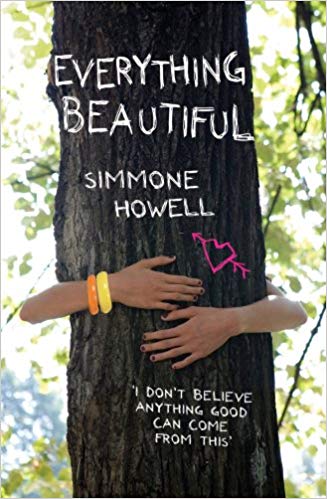 Riley Rose is an atheist, a cynic, and quite the rebel. She’s also fat, but she’s determined to make that irrelevant to her life. Her mother died a few years before the book opens and her dad turned all religious and acquired a super-Christian girlfriend. Riley is a bit of a party girl, and when she gets in trouble for breaking into a pool with a bunch of friends, her dad’s solution is to send her to church camp. Obviously.
Riley Rose is an atheist, a cynic, and quite the rebel. She’s also fat, but she’s determined to make that irrelevant to her life. Her mother died a few years before the book opens and her dad turned all religious and acquired a super-Christian girlfriend. Riley is a bit of a party girl, and when she gets in trouble for breaking into a pool with a bunch of friends, her dad’s solution is to send her to church camp. Obviously.
From the beginning, she plans to be uncooperative and hate all the ridiculous religious people. She says she will “go as a plague” and try to make life miserable for everyone else. She arrives and quickly makes a minor enemy out of her cabin-mate by stealing her bed. Things proceed from there about as you’d expect. Most of the other campers think she’s sinful and therefore a terrible person. But what Riley doesn’t expect is to make friends with a very odd girl (who “performs her ablutions” on the regular), an odd brother and sister pair, or meet a boy she likes even better than her current boy-of-the-month.
When she firsts sees Dylan, he’s wheeled himself onto the stage at the camp and when she throws a sprig of lavender at him, he eats it and she sees a kindred spirit—someone else who’s lost, moody, superior, and charged, as she thinks of herself. It isn’t until she gets in trouble at the same time as Dylan—not with him, just at the same time—that they start getting to know each other. As punishment, they’re tasked with clearing out a house of a recently dead old man’s possessions.
I liked Riley and rooted for her, though I didn’t really identify with her. She isn’t necessarily a very nice person all the time, with all her rebelling. But she’s still interesting to follow. Dylan is also cool to watch—he’s a little enigmatic for a while, but we start to get him more as Riley gets to know him. There aren’t a lot of books with characters in wheelchairs out there, and I learned some stuff from this book (note: do not touch someone’s chair). It’s also entertaining to watch Riley sort of move toward having faith in something—I didn’t take it that she became a Christian, but rather that she started to develop faith in the world, something she’d lost before. The ending is a little vague in that we’re not sure that Riley and Dylan will see each other again, but it’s clear that they’ve each changed as a consequence of meeting.
If you like reading about rebels, you will probably like this one.